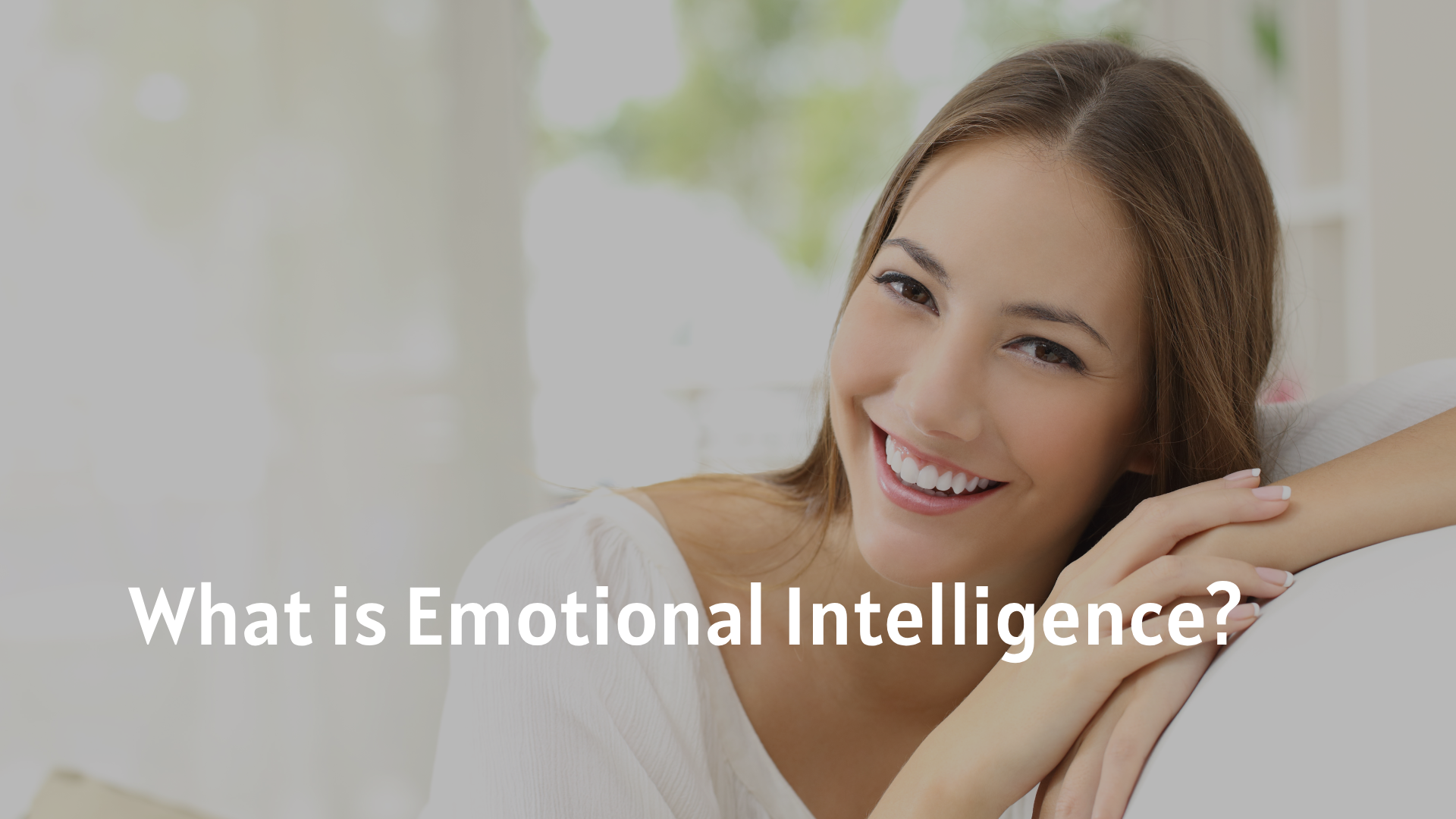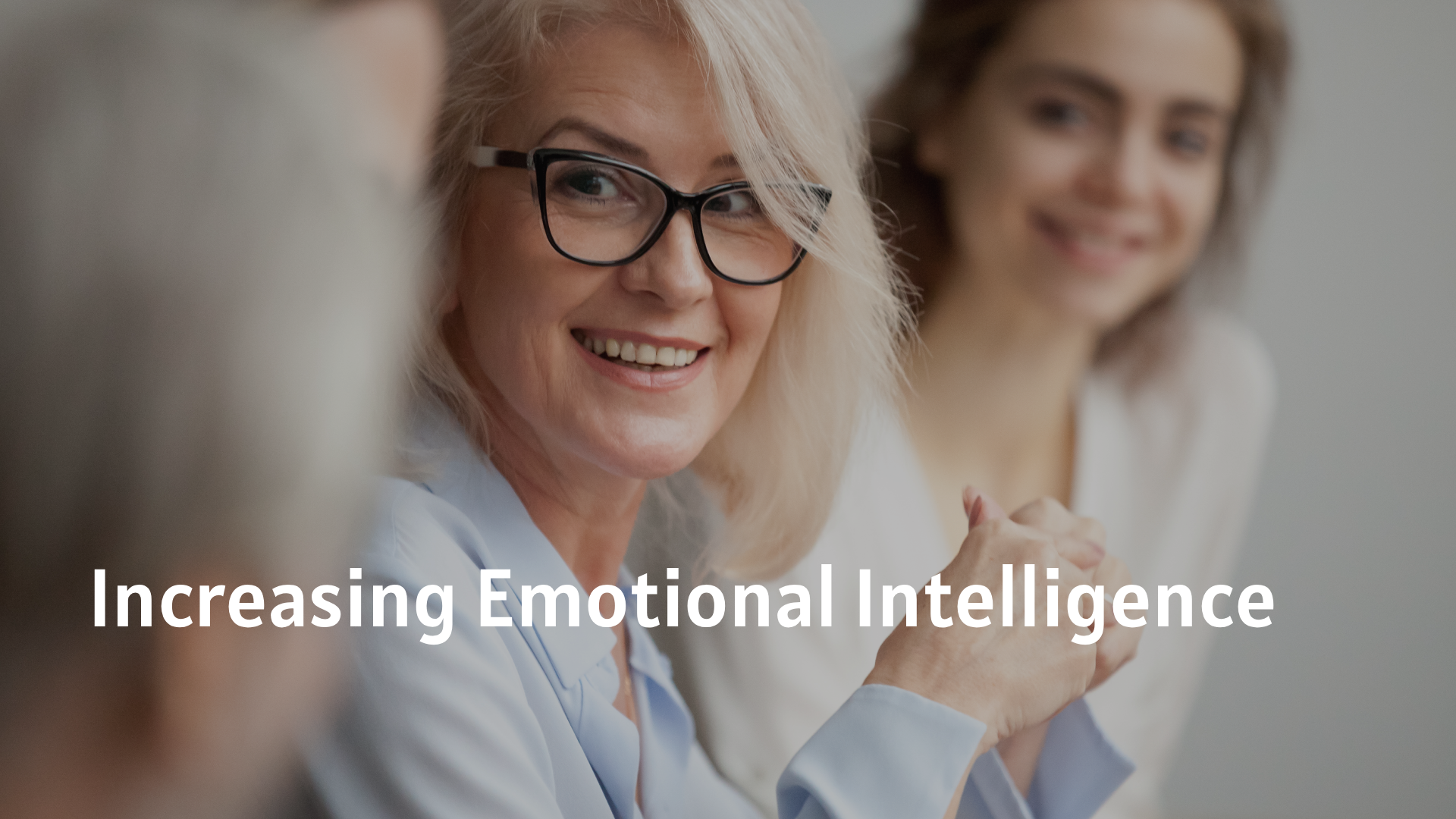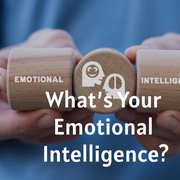Emotional intelligence, also known as the emotional quotient, or EQ, is the ability to recognize and regulate emotions. Find out your EQ, signs of high emotional intelligence, and how to improve your emotional Intelligence.
Your emotional intelligence is obvious to people wherever you go, but you might be the last person to realize it. Emotional intelligence helps you build relationships, problem solve, and understand other people as well as yourself. Join SpiritualBlossom to learn all about it. Discover exactly what it is, and signs of high emotional intelligence. Take our quiz to see just how high your emotional intelligence is. If you’re not happy with the answer, that’s okay. We have some great tips for how you can improve your emotional intelligence. You might not be able to change other people’s emotional perception skills, but you can always improve yours. Read on to find out how.
What is Emotional Intelligence?

Emotional intelligence, also called EQ or emotional quotient, is something that has been defined and described by multiple people. Two professionals, named Peter Salovey and John Mayer say it is “accurately perceiving emotion, using emotions to facilitate thought, understanding emotion, and managing emotion.” It helps to facilitate understanding of interpersonal relationships and it is the ability to use empathy, intelligence, and knowledge of emotions to understand ourselves and other people. They also said it is “ the ability to monitor one's own and other people's emotions, to discriminate between different emotions and label them appropriately, and to use emotional information to guide thinking and behavior.” It includes:
Perceiving Emotions
You have to first be able to perceive emotions before you can act on them. You can judge by people's facial expressions and other body language, tones of voice, the words they're using, and even the energy that they're sharing. If you are a good judge of emotion from these things, it will help you with your emotional intelligence.
Using Emotions
Using the emotions once you perceive them is very important. If you know that chocolate cake makes your neighbor happy, taking them a chocolate cake when you want to ask them permission for something will make it easier to get them to agree to it.
Understanding Emotions
It's always easier to understand something that you have experienced yourself, but even if you haven't, if you can pick up on emotional cues that other people are giving you, you can understand how they feel.
Managing Emotions
Harnessing your own emotions and reacting accordingly to other people is very important and a big part of EQ. Staying calm in an upsetting situation or finding ways to encourage other people when they're feeling emotionally down is important. Read ten tips for how to manage your emotions here: The Ten Best Ways to Control Emotions
Why Think About EQ?
The reason your EQ should matter to you is simple. It helps you to perceive your own and other people’s emotions and respond accordingly. This is especially helpful in tense situations. On the job you can use your EQ skills to mediate disagreements, and keep the team operating harmoniously. In your personal relationships, you can tell how the people you love are feeling and detect what they need. Most of all, being aware of your own emotions will help you to choose responses.
For example, you may have an ex who upsets you and you cry whenever you see them. You might also dislike it when people see you get that upset. So, if you are aware that your ex is coming someplace, bracing yourself for the minute they walk in the door will be a big help. Someone with a low emotional IQ might have no clue how they react to things and people who upset them. Emotional IQ also helps you to get along with other people. If you know a topic is especially upsetting for a co-worker, avoiding the topic in discussion can help keep the tone at work professional.
The number one reason, though, no matter what the result of awareness, to have a high EQ is because feelings matter. Humans are emotional creatures. Some people behave less emotionally than other people, but everybody has feelings. Our feelings help us to decide what we will say, do, and how our relationships go. If someone is showing signs of emotional distress, and your EQ is high, you can detect this, and think of ways to reassure them. Even self regulating of emotions through emotional self-awareness matters, even if you are not reaching out to others. Learn all about emotional awareness here; Unlocking the Power of Personal-Awareness
Signs You Have a High EQ
High emotional intelligence is easy to detect. While not everybody excels in all of these areas, even excelling in a few will help. If you notice small changes in people and don’t get defensive about things, those are signs of high EQ. Not needing people’s validation regularly, staying calm in upsetting situations, and not needing to fight to prove you are right does too. Knowing your own triggers, apologizing when you are wrong, and seeking personal growth also show high emotional intelligence. If other people can’t take control of you and you also respect other people’s needs, those are signs of high EQ.
You Notice Small Changes
Small changes in people like body language, words, energy, or their presence are indicators of their emotions. For example, if someone is always around, and suddenly they're not, that's an indicator that something is wrong. Some people's energy shifts are noticeable even if their behavior doesn't change. There are some people who are sensitive to energy that say they can tell the difference in the temperature in the room when someone's energy shifts because they are upset. Being able to detect small changes in people will help you know what their emotional state is.
You’re Not Defensive

How do you react when people try to upset you? Do you automatically want to defend yourself and fight back, or do you just assume that there is something wrong with the person who is behaving that way towards you? Being defensive shows that you struggle to regulate your emotions. What about constructive criticism? If you're unable to take constructive criticism well, you struggle with emotional regulation. If you take constructive criticism well and appreciate it, that's a sign of a high emotional IQ. Being humble will help you to avoid being defensive also. Read all about being humble here: Humbleness - The Art of Defeating Your Ego
You Don’t Need Constant Validation
Some people seem to need constant reassurance. They fall to pieces if somebody doesn't like their outfit. They get upset if people aren't immediately attracted to them. They need praise that they're doing the right thing. If you are not this way, it's a sign of high emotional IQ. It means that you are secure enough in yourself that you don't need constant praise. Confidence within yourself, even if everybody else isn't agreeing with you, is important for your own emotional well-being, and it shows a very high emotional IQ.
You Stay Calm
Staying calm in difficult times is a sign of high emotional IQ. It doesn't mean that you don't get scared or worried about difficult situations. It just means you don't let them make you fall to pieces. Staying calm while you figure out what to do when something is frightening, difficult, or just frustratingly unexpected helps you to keep a clear head and makes you a better problem solver. Think about it this way- things are already difficult enough right? There's no reason to suffer more because you allow your emotions to get the better of you. It also helps to learn to be happy while staying calm in dark times. Learn how here: Being Happy, Even in Dark Times
You Don’t Need to Be Right
Everybody has their opinions, beliefs, and thinks they're right. If you have a high emotional IQ, you won't feel the need to prove that you're right. You will understand that it doesn't matter. You will understand that protecting your peace is more important than fighting for people to agree with you. We are all at different points of our personal development and you may be further along in your learning than someone who can't see that you're telling them the truth. If you can learn to let that go and not let it get to you, your emotional IQ will be very high.
You Know Your Triggers
Even if you have a high emotional IQ, there will still be things that trigger you. Becoming aware of your triggers means that you can control them instead of them controlling you. If one particular political topic makes you especially upset and you have a relative that makes sure to talk about it at every family gathering, refuse to be engaged. If you have survived trauma or abuse and you get flashbacks from time to time, realizing that these are going to happen will be a big step in helping you to manage them. You might wonder why your trigger had to happen to you. Everybody has them, so be aware of yours for high EQ. Healing from trauma is easier if you are aware of triggers. Read how here: Healing Form Past Traumas
You Apologize
We are all wrong sometimes. Even you. If you can admit that to yourself, it helps you to be able to give a genuine apology when it's called for. Being able to apologize is a sign of a high emotional intelligence. Apologizing correctly and accepting responsibility for what you've done and pledging to do better in the future show high signs of emotional IQ.
You Seek Growth
Being aware that you need to grow as a person and seeking to do so is another sign of a high emotional intelligence. There are always opportunities for us to become better versions of ourselves. We can always learn something new, do something better, and open ourselves to different experiences. No matter how wonderful you are, there will always be chances to grow in some way. Read about growing into your best self here: How to Be Your Best Self
Others Can’t Control You
Some people are good at manipulating others into doing, saying, and feeling the way they want them to. If people can't do this to you, it is a sign of a high emotional IQ. You will recognize what they are trying to do and refuse to hand over control of your emotions to them. They won't be able to bully you into things with peer pressure, and they won't be able to shame you into doing things you disagree with. The worst they can do is annoy or amuse you when they're behaving that way, but when they realize they're not going to get what they want, they will move on.
You Respect Other’s Needs
Respecting other people's needs and feelings as a sign of high EQ. You will be aware that your needs aren't the only important ones, but everybody matters. You might not automatically know what their needs are, but when you find out, you will react accordingly if you have high emotional intelligence. One Zodiac sign that is talented at recognizing other’s needs is Pisces and you can read about them here: Pisces Zodiac Traits and Love Compatibility
EQ Quiz
There are plenty of Emotional IQ Quizzes online, but ours is five simple questions. The more questions you answer yes to, the higher your EQ. The more you answer no to, the lower it is.
1) Other people’s emotions matter no more or no less than mine.
2) I adjust my approach based on the way other people feel.
3) I pay attention to other people’s cues, so I know how to communicate with them.
4) I don’t attend every argument I am invited to.
5) If someone is unkind to me or dislikes me, if I have never caused them any harm, I am secure in myself enough to accept their opinion and move on without being upset.
Increasing Emotional Intelligence

The path to emotional intelligence can be confusing, but it doesn't have to be. There are just a few easy steps that you need to take to raise your emotional intelligence. Practice regular self-reflection so that you are aware of yourself. Listen and be patient while you're learning what other people need to support their emotional well-being. Then, once you find out, respect their needs and boundaries. Yes, it's that simple!
Self-Reflection
We all get busy and focus our attention on whatever we're doing at any given time. It can be difficult to remember to pay attention to ourselves while we're paying attention to everything else. If you can do that though, you will understand yourself much better and be able to adapt accordingly. You deserve just as much attention as other people and the things that you're busy working on.
Listen and Be Patient
Practicing good listening skills will help you to understand how other people feel and what they need. If you're not sure what somebody's emotional cues are indicating, simply ask. The key to high emotional IQ and your communications with other people is always listening to them. Keep in mind that you might not always understand why their emotions are the way they are, so just be patient.
Respect Needs and Boundaries
The final step to improving your emotional IQ is to respect the needs and boundaries of other people and yourself. Follow these three steps and your emotional IQ will be very high!
Emotional IQ is recognizing, understanding, and regulating emotions in such a way that it improves communication, and helps you to be your best. Signs of a high emotional IQ include knowing your own triggers and being open to apologizing. If you're not happy with how high your emotional IQ is, you can always raise it with self-reflection, listening and being patient with other people, and respecting everybody's needs and boundaries. Our emotions aren't everything, but someone who cares about other people's emotions will mean everything to them!
Want more tips on helping to raise your emotional IQ? Get a personal reading with one of our psychics started to find out how today.
About the Author: Lady Saoirse has studied magic and lore for most of her life but started walking her own Magical Path after being spiritually reborn in the desert. Today she is a High Priestess for The Temple of the Goddess, she is a psychic advisor and spiritual counselor, she shares her gifts as a Psychic and Content Writer for Mysticsense and SpiritualBlossom, and she writes for PaganPages.Org emag.






